My Favorite Sources for Real Food
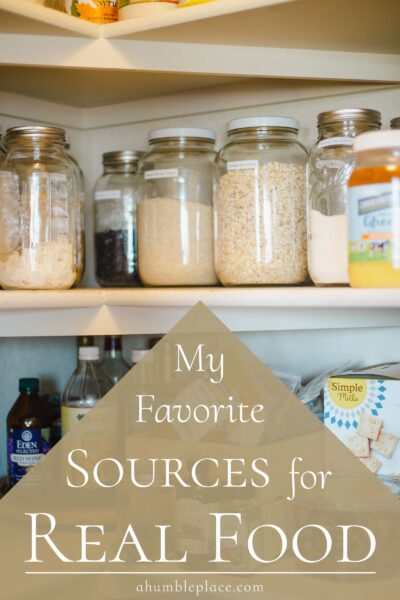
While homeschooling is definitely an important topic to me, I see it as just a part of caring for my family as a whole. With that said, I’m going to pivot a little from my usual homeschool-themed posts today and talk about another essential part of my caring-for-my-family repertoire: food!
In 2011, we made a massive pivot in how we eat, and food has been a high priority in our home ever since. What I feed my family and put into the bodies of the people most precious to me in this world is very important, and I do my best to keep those things as pure and simple as possible. I also have an awful sweet tooth and know that if I bring junk food into the house, it’ll most likely be gone within a few hours of coming through the door. So making sure good food is stocked in our fridge and pantry is also necessary not to take a massive hit to my own health.
I’ve written posts with recipe collections and details about how I do my meal planning, but I haven’t updated my list of real food sources in a very long time. Today I thought I’d rectify that by sharing what I’m using right now to find “real” (by which I mean whole/organic/grass-fed/pastured/etc.) foods. Sourcing affordable real food was vital to me before everything that happened in 2020, but with the way food prices have increased over the last year-and-a-half, it has become even more of an urgent need.
Criteria
My criteria for sourcing food have definitely changed over the last ten years. At first, my top priorities were just getting real food however I could and whatever it might cost. The first time I looked at the price of a half-gallon jar of raw milk, I knew that we would be spending a lot more money on food, but it was worth it to me. I still feel that it’s worth it, but because we’re in a different place financially than we were ten years ago, I have to be more aware of how much I spend on our food.
Another thing that has changed in the last ten years is that both my husband and I run our own small businesses, which has made us more conscious of this subculture. Because of this, we try to spend our dollars as much as we can on other small businesses and farms, especially local ones. This has been challenging but rewarding in knowing that we’re supporting local food sources and the families that grow it. Some day we’ll get to the point where we can provide at least some of our own food through a garden, poultry and/or livestock, but with where we live now, this is either impractical or not allowed at all (yay HOAs…).
I also try to find places where I can buy food in bulk. I have learned that bulk is my friend. Not only is it cheaper, but it allows me to make fewer trips to the grocery store, which is an absolutely beautiful thing in my already overwhelming schedule. It’s fantastic to make my grocery list for the week and only have to pick up a few things from the store because our pantry and freezer are fully stocked.
Finally, I generally don’t compromise on fair trade products. If I have access to them, regardless of the price or who is selling it, I will buy those over non-fair trade products, especially for chocolate, coffee, and sugar.
So without further ado, here are my favorite sources for real food!
Colorado Sources
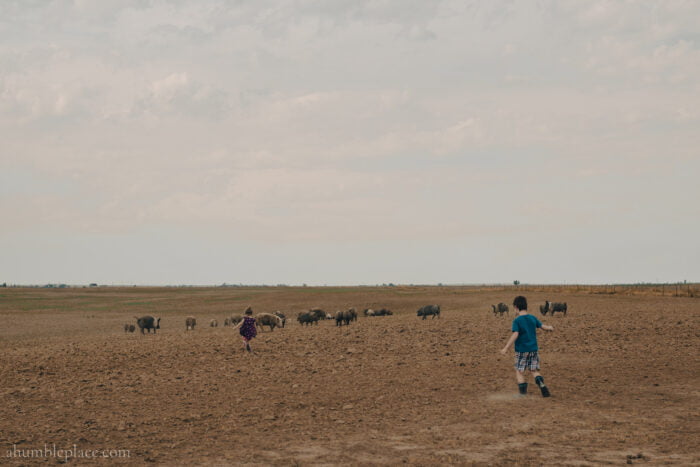
These are the local resources I currently use, have used in the past, or are interested in using.
- Ebert Farms (Front Range) – This is our source of raw milk, beef sides, and sometimes eggs and honey. If you’re looking for a good source for any of the things mentioned above or pork (we don’t eat enough pork to warrant buying a side, but my kids have chased the pigs on their 40 acres of pasture), I can’t recommend them enough. We;ve been with them since 2013 (we were with Windsor Dairy before that but have had a much better experience with Ebert), have visited the dairy several times, and the family that runs it is wonderful. Our milk and anything else we order is delivered once per week to a drop point in our town, and we pick it up. Because the sale of raw milk is illegal in Colorado, you have to sign up to become a herd owner before you can buy the milk, which you can read all about here.
- Ahavah Farm (Colorado Springs and surrounding area to Denver) – I’ve had my eye on this farm for a while as their growing practices are awesome and they even offer a program for those wanting to sign up for their CSA but can’t afford it so they can still get a share. The farm is located in Peyton and offers a weekly farmer’s market as well as classes and farm tours. They also deliver their CSA offerings throughout the Colorado Springs area and up to Denver.
- Sandy’s Way Micro-Farm (Castle Rock) – Cale offers fresh produce grown locally which you can get as part of the CSA, pick up at the weekly farmer’s market at the Douglas County Fairgrounds, or pickup at other times throughout the week at various locations around Castle Rock.
- Jodar Farms (Front Range from Fort Collins to Denver) – This was a chicken CSA that we were part of several years ago and I wish they delivered further south!
National Sources
Azure Standard
If you follow me on Instagram, you know I often wax poetic about Azure Standard. I have been buying from them since April of 2012 and, though there were a few years in there when I was less enamored with them, more recently, the variety, quality, price, and availability of their products have improved exponentially. It would be a lot more challenging to afford to eat this way, let alone find many products we buy without Azure Standard.
First, though, what is Azure Standard?
Azure Standard is a distributor (as well as grower and supplier) of natural and organic foods and other products related to “natural” living. I love that they not only grow/make many of the products they sell, but they also sell many products from small and micro-businesses and promote those businesses in their print materials. Aside from food, they offer things like health and beauty products, household supplies (including cleaning products, emergency preparedness supplies, and more), supplements, and outdoor and garden products. They even offer some livestock and poultry feed as well.
Instead of buying from them through stores, you order from their website and pick up your order from a central drop location near you once per month (we have been fortunate to have all of the drops we’ve used over the years within a half-hour of our house). This eliminates the middle man, and their prices are usually much better than the local grocery store, especially when buying in bulk.
How do you shop at Azure Standard?
I usually start by looking for things that I commonly buy and could get away with stocking only once per month or even less. Because Azure ships both shelf-stable and perishable items, I can buy many things in bulk that I can’t get in the same amounts at my local store. The key to buying from Azure is getting as much in bulk that’s reasonable for your family and going with the Azure brand whenever possible. The more you buy, the more you save, so I usually buy the largest amount of a product that fits within my monthly Azure budget and won’t expire before we can use it up. (They also sell 5-gallon, food-grade plastic buckets with gamma lids and 1-gallon glass jars and lids for long-term food storage.)
I then compare prices. I have a spreadsheet where I have the cost of specific products at several different stores (mainly Azure, Costco, and Natural Grocers and a few things from Amazon Subscribe and Save that I can’t get anywhere else) broken down by price per ounce to see where I get the most bang for my buck. Again, because I can buy in bulk from Azure, the best deal is often through them. This is especially true in recent years as they’ve started offering their own line of products at much lower prices.
Whatever I find at Azure that has the best price, I add to my favorites list. This list includes staple products I regularly buy so I can find them all quickly when I start a new order each month. Throughout the month, I add things as I discover we need them, and when I get reminders that my order deadline is coming up, I submit my order. The great thing about this, though, is that I can still add or remove items or even cancel the order altogether even after it has been submitted. I mainly submit early in case I forget to do it before the deadline.
Usually, about a day or two after my order deadline, I get a delivery schedule to let me know when I can go and pick up my order. Then another email comes in confirming what was shipped to me (sometimes some of the products aren’t available, so I’m not charged for those) and how many cases I’ll have to pick up. When it’s time, I head to my pick-up site, help unload the truck, and bring my goodies home. I enjoy Azure pick-up days as I get to see people, some of whom I’ve been at the same drop with (even in different locations) for years, and we can catch up. It’s also nice to be around like-minded people. I know of other drops where people get together to do bulk food-buying orders from other suppliers as well.
Then the whole process begins again, and I start a new order for the next month.
Azure does not charge any membership fees. However, there is a delivery charge of 8.5% in some states (including Colorado), but Azure Cash helps offset this fee. Any orders under $50 are charged an extra $5, and drop sites need to meet a minimum of $500 to have their shipment sent. Not meeting this minimum happens very rarely, and I’ve only experienced it one or two times since I began using Azure in 2012.
What do you buy at Azure Standard?
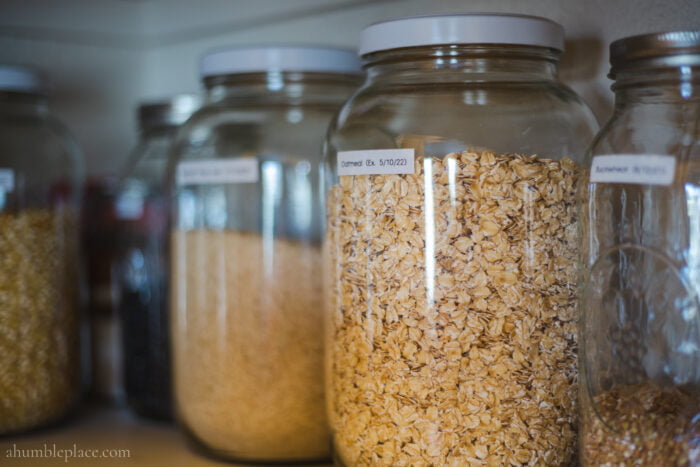
Below is the list of most of the products that I’m currently buying at Azure (you can also watch videos of my latest Azure hauls here). The majority of these are the best price I can find. Some of them may not be the cheapest, but I do make compromises. I have been frustrated many times in the last year to go to the local store only to find something out of stock repeatedly. Even though the store may have had the better price, I’m willing to pay a little more to know that I will have that item in my freezer or pantry when I need it. I am also moving away from using Amazon, so if a product at Azure comes out at a similar or slightly higher price than Amazon Subscribe and Save, I’ll choose Azure. I highly recommend comparing the prices of products you buy regularly!
(Last updated 17 September 2023)
Dairy
- Rumiano Organic Salted Butter
- Sierra Nevada Cheese Company Graziers Medium, Raw, Grass-Fed Cheddar Cheese
- Organic Valley Mozzarella Cheese (I freeze this and use it for homemade pizza)
- Rumiano Parmesan Cheese Wedge
- Straus Family Creamery Organic Vanilla Bean Ice Cream
Produce
- Organic Yams
- Organic Yellow Onions
- Organic Sugar Pie Pumpkins (I roast several of these at a time [you can also cook them in the Instant Pot] and then scoop out the flesh and puree them in the food processor before freezing the puree in a silicon muffin pan)
- Organic Juice-Grade Apples (these are a seasonal item sold at a discount due to some “problem,” eg. size, appearance, etc., but are fine for eating – we also use them to make dried apples and applesauce)
- Organic Butternut Squash (these store well but can also be frozen to make butternut squash soup)
- Organic Satsuma Mandarins
- Organic #2 Peaches, Yellow Flesh
- Organic Red Bell Peppers
- Organic Garlic
Fermented Foods
- Bubbies Kosher Dill Pickles (and spicy for my husband)
Pantry
- Azure Market Organics Black Beans (I soak these overnight and cook big batches which I then freeze in gallon-sized bags for convenience)
- Azure Market Organics Chocolate Chips, Dark, Fair Trade, Allergen Free
- Azure Market Organics Coconut Sugar
- Azure Market Four-Fold Vanilla Extract
- Azure Market Organics White Wine Vinegar
- Coconut Secret Organic, Raw Coconut Vinegar
- Wholesome Sweeteners Organic Blackstrap Molasses
- Mediterranean Organics Kalamata Pitted Olives
- One Degree Organics Sprouted Rolled Oats
- Bionaturae Organic Tomato Paste
- Azure Market Organics Ketchup
- Jovial Foods Brown Rice Pasta (we especially like the capellini)
- Eden Foods Organic Canned Black Beans
- Napa Valley Organic Extra Virgin Olive Oil
- Azure Market Baking Powder
- Jovial Foods Organic Diced Tomatoes, in Glass
- Red Star Nutritional Yeast
Herbs and Spices
- Organic Ashwagandha Root
- Organic Basil
- Organic Coriander
- Organic Dill
- Organic Garlic Granules
- Organic Licorice Root
Beverages
Snacks
Tortillas
Kitchen Tools
Frozen
- Azure Market Organics Frozen Bananas
- Azure Market Organics Frozen Peas
- Azure Market Organics Crinkle Cut French Fries
- SnoPac Organic Cottage Fries
Grains/Nuts/Seeds/Starches
We don’t eat a whole lot of grains, but like to stock up on the few that we do eat.
- Azure Market Organics Blanched Almond Flour (or transitional almond flour)
- Azure Market Whole, Raw, California Transitional Almonds
- Azure Market Organics Arrowroot Powder
- Azure Market Organics Buckwheat Groat Grits
- Azure Market Organics Cassava Flour
- Azure Market Organics Whole Black Chia Seeds
- Azure Market Organics Golden Flax Seeds
- Azure Market Organics Gluten-Free Rolled Oats (these are also very good)
- One Degree Organic Sprouted Rolled Oats (I use this to make oat flour)
- Lundberg Organic White Basmati Rice
- Azure Market Transitional Blanched Almond Meal Flour (“transitional” means in the process of becoming certified organic)
Meat
I get a beef side once or twice a year from our raw milk dairy to stock up on beef, so I usually only get beef when we’re running low. For chicken, I appreciate the quality of Mary’s, so I buy a few cuts from Azure but most of them (including whole organic hens) are cheaper at Natural Grocers (especially when they’re on sale or discounted).
- Mary’s Organic Boneless & Skinless Chicken Breast
- Mary’s Organic Chicken Thigh
- Mary’s Organic Chicken Party Wings (because my husband is from Buffalo :))
- Thousand Hills 85/15 Grass-Fed Ground Beef
Seafood
I also get some of our seafood (frozen salmon and canned salmon) at Costco.
- Safe Catch Wild Sardines in Extra Virgin Olive Oil
- Seafood Producers Cooperative Frozen Wild Cod Fillets
Supplements
- Azure Market Organics Elderberries (I use these to make elderberry syrup)
- Oregon’s Wild Harvest Children’s Echinacea Extract
Household
- Berkey Water Filter Systems (and filters!)
- If You Care Parchment Baking Paper
- If You Care Baking Cups
- If You Care Paper Sandwich Snack Bags
- Red Gorilla Containers (good for the pantry)
- Wide Mouth Glass Gallon Jars (these are nice and thick and excellent for storing food in the pantry – also lids)
- McLaury Apiaries 6″ Everyday Beeswax Candles
Outdoor/Garden Supplies
- Organic Garden Starts (one of my favorite things to get from Azure – only available in the spring and early summer)
Cleaning Supplies
- Azure Clean Stench-X, Ylang Ylang
- Azure Clean Smiley Sudz Lavender Dish Soap
- Azure Clean Toilet Bowl Cleaner
- E-cloth Products (these are higher-end micro-fiber cleaning tools, work great, and are much cheaper than brands like Norwex)
- Azure Clean Automatic Dishwasher Powder
(I was using Azure’s laundry soap but found that it didn’t work as well long-term with our hard water and switched back to our old brands of Grab Green)
Health/Beauty/Personal Care
- Dr. Bronner’s Baby Mild Castile Soap (I use this to make foaming hand soap – the Azure Cash on Dr. Bronner’s products is excellent!)
- Kettle Care Eye Creme
- Kettle Care Balancing Lavender Creme with Ylang Ylan & Goji Berry
- Kirk’s Body Wash
- Sappo Hill Lavender Bar Soap
I also have videos of my latest Azure hauls on my YouTube channel!
Costco
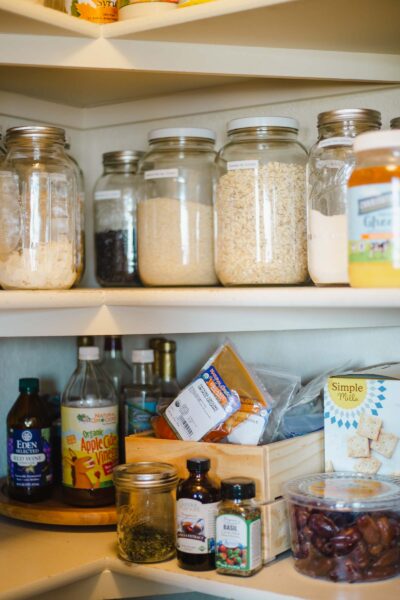
Costco is a compromise in that it’s obviously not a small business, but they do have great deals on organic foods, so I budget only a certain amount to this store each month. We have several staples we get there that are either far cheaper than Azure or not available through Azure at all. Right now, these are:
- Organic Bananas
- Organic Grape Tomatoes
- Kirkland Organic Frozen Blueberries
- Rader Farms Organic Frozen Cherries
- Maas River Farms Organic Frozen Green Beans
- Carrington Farms Organic Grass-Fed Ghee (this is the very best price I have ever found on ghee, which I use for frying and sauteeing)
- Kirkland Organic Maple Syrup
- Kirkland Organic Dried Mango Slices
- Kirkland Organic Walnuts
- True Story Organic Turkey Lunchmeat (I get two of these per month and separate them into enough for us to use for a week, then freeze it)
- Wildbrine Organic Sauerkraut (when I don’t make my own)
- First Colony Organic Fair-Trade Coffee
- Kirkland Organic Virgin Coconut Oil
- Thai Kitchen Organic Coconut Milk
- Organic Apples
- Bertoli Organic Marinara Sauce
- Kirkland Organic Ground Saigon Cinnamon
- Kirkland Ground Black Pepper
- Hadley Date Gardens Organic Pitted Dates
- Navitas Organic Cacao Powder (Azure also sells cacao, but it’s not fair-trade – they do have organic, fair-trade cocoa powder)
- Simple Mills Organic Almond Flour Crackers
- Italian Volcano Organic Lemon Juice
- Kirkland Wild Pacific Salmon
- Kirkland Wild Atlantic Cod
- Kirkland Canned Wild Salmon
- Kirkland 100% Grass-Fed Beef Patties
Natural Grocers
I know this store better as Vitamin Cottage, which was their original name and what they were called when we first moved to Colorado (and what I keep calling them because I have a hard time with new monikers). They’re not everywhere just yet, but they keep spreading, so you may have one near you already. This is where I do my weekly grocery shopping when it’s needed, and I am quite fond of this little chain.
The main things I get at Natural Grocers include:
- Produce – I love that everything they offer is organic, so I don’t have to double-check. I try to get produce that will last longer (e.g., root vegetables) from Azure Standard, but anything else that’s not provided by one of the local options in the Colorado Resources section above comes from Natural Grocers.
- Herbs and Spices – Their prices on store-brand bulk herbs and spices cannot be beaten unless you buy in large bulk amounts. Due to space, buying them in bulk is not an option for us right now, so I get all of ours from Natural Grocers.
- Dairy Products – They aim to source all of their dairy products from farms that pasture their animals, which I also love. My favorite brands are Maple Hill Creamery, Kalona Supernatural, and Nancy’s.
- Eggs – They have the best prices of any store on cage-free and pastured eggs. If you can buy eggs from a local farmer/source, it can sometimes be cheaper than the store, and the eggs are far superior. But if that’s not an option, pastured eggs from the store are definitely the way to go.
- Meat – If you don’t have a good source for beef/pork sides or chickens, Natural Grocers has very high standards on the meat they sell, and the prices are reasonable. They have especially good prices on whole, organic chickens as well.
- Nuts – I get most of our nuts from Azure or Costco, but if you don’t have access to either of those places, Natural Grocers has very good prices on bulk nuts.
- Honey – I prefer to get local honey for the allergy benefits and our local store sells from a beekeeper who is just about 20 minutes from our house. When they don’t have any in stock (which happens often during the winter months) I either buy from our raw milk dairy (another semi-local beekeeper), Costco’s “Colorado” raw honey, or from Azure Standard.
Bountiful Baskets
Oh, how I miss Bountiful Baskets. The website is straight out of 1996, but the prices they offer are fantastic. Once every two weeks, you go to a local pick-up location and collect your box of organic or conventional produce and/or other goodies (in the past they have also offered bread and pork). It actually reminded me of a CSA (though the produce is not necessarily local) in that you don’t know what you’re going to get, but you don’t have to sign a long-term agreement. Sadly, about five years ago they made some changes and Colorado isn’t even listed as an option anymore. But if they’re available in your area, I highly recommend them!
National Sources with Caveats
Imperfect Foods
I tried both Imperfect Foods and Misfits Market and preferred Imperfect over Misfits Market as the boxes weren’t shipped but instead delivered by the company. I was very impressed with their egg and meat options, though we only ever got eggs through them and they were very good. Their produce was also good aside from greens… we seem to have a hard time with delivered greens staying fresh as we had the same problem with Misfits Market. Ultimately we chose not to continue the service because our local Natural Grocers was cheaper, but if you’re wanting to limit trips to the grocery store and enjoy the convenience of having food delivered to your door, this is a good option.
Butcher Box
I was so, so thankful for Butcher Box at the beginning of the COVID stay-at-home orders. Having pastured meats delivered right to my door was a huge blessing when, even when we could get to the store, all of the meat was often completely out of stock. After that, I used them primarily to source roasts and some ground beef when we weren’t able to get a beef side. I was less impressed by the quality of their beef stew meat, didn’t care for their chicken at all, and Costco has better prices on seafood. If you are looking for a source for grass-fed roasts and ground beef, they are a good option.
US Wellness Meats
When we first began eating this way, sourcing grass-fed beef was a lot more challenging than it is now, so I bought it in bulk from US Wellness Meats. The ground beef was great except when I tried to save a few dollars and got the 75/25, so I don’t recommend that. The quality was also hit or miss with their beef hot dogs. I stopped buying from them partially because of that and partially because their prices are higher, but mostly because we began getting beef from our dairy.
Other Resources
These are resources to find access to local real food in any area.
- Eat Wild – Find pastured meats, eggs, and dairy here!
- Real Milk – This is a directory of raw milk distributors around the world.
- Local Harvest – This is a directory of farmer’s markets, CSAs, co-ops, and open-to-the-public farms across the US.
Let me know if I’m missing a resource that you love!
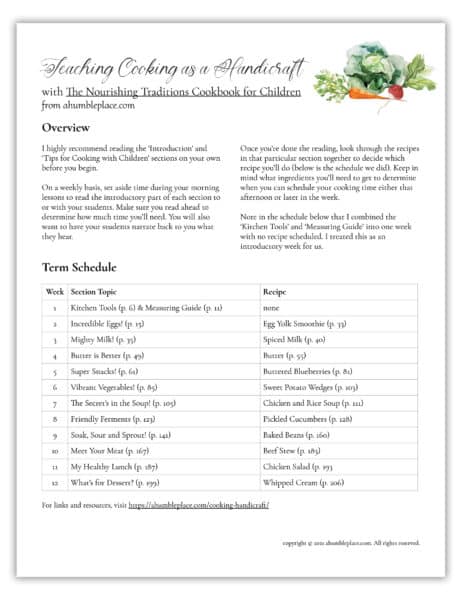








I’m glad you shared this. I have been interested in Azure Standard for about as long as you have been buying from them but for many many years they did not have a route in PA. Then, they did, but none near me. Instead, I was able to join a UNFI co-op delivery, but their website was difficult and the coop disbanded years ago. Today I checked the Azure Standar website and there is a drop off 25 minutes away (in a direction I frequently go!) I will be trying to figure out how this fits into my food sourcing and your list will be helpful as a starting place.
I admire your food budget! I have chosen to put less to food to put more to student loans and I don’t feel great about especially regarding luxury items like coffee and chocolate chips. I’m very fortunate to live in an area with lots of local fruits and vegetables so I’ve put the majority of my food dollars to eating locally and in season for produce, milk, and meat. I used to buy some things from Amazon, but in recent years, anything I can’t order in bulk from our local health food store I have been buying from Vitacost. I find that they match or are lower than Amazon for prices especially with their frequent coupons and you can get cash back from Rakuten.
Aah, I used Vitacost years ago but their prices were not great then. I will have to look into them again – thanks for the reminder!
Would you ever consider sharing your excel spreadsheet with the grocery item cost comparison? It would be super helpful!
I’ve actually thought about writing a post all about that…I may have to try and get that done this year. 🙂